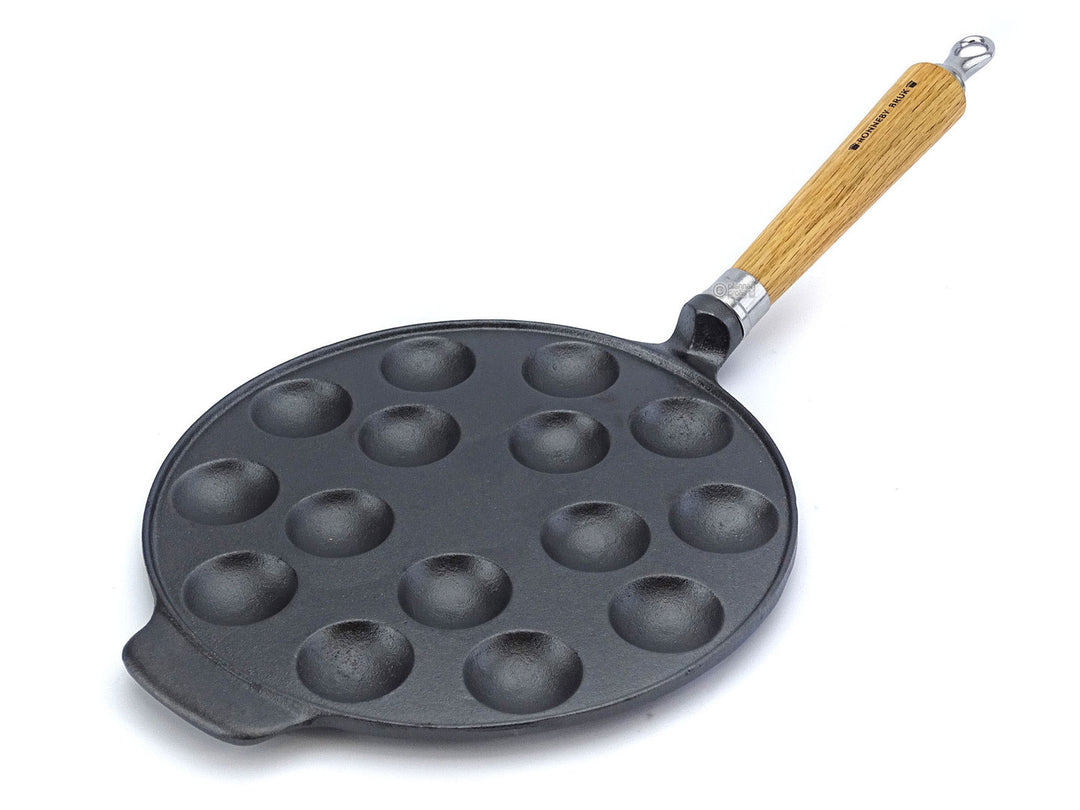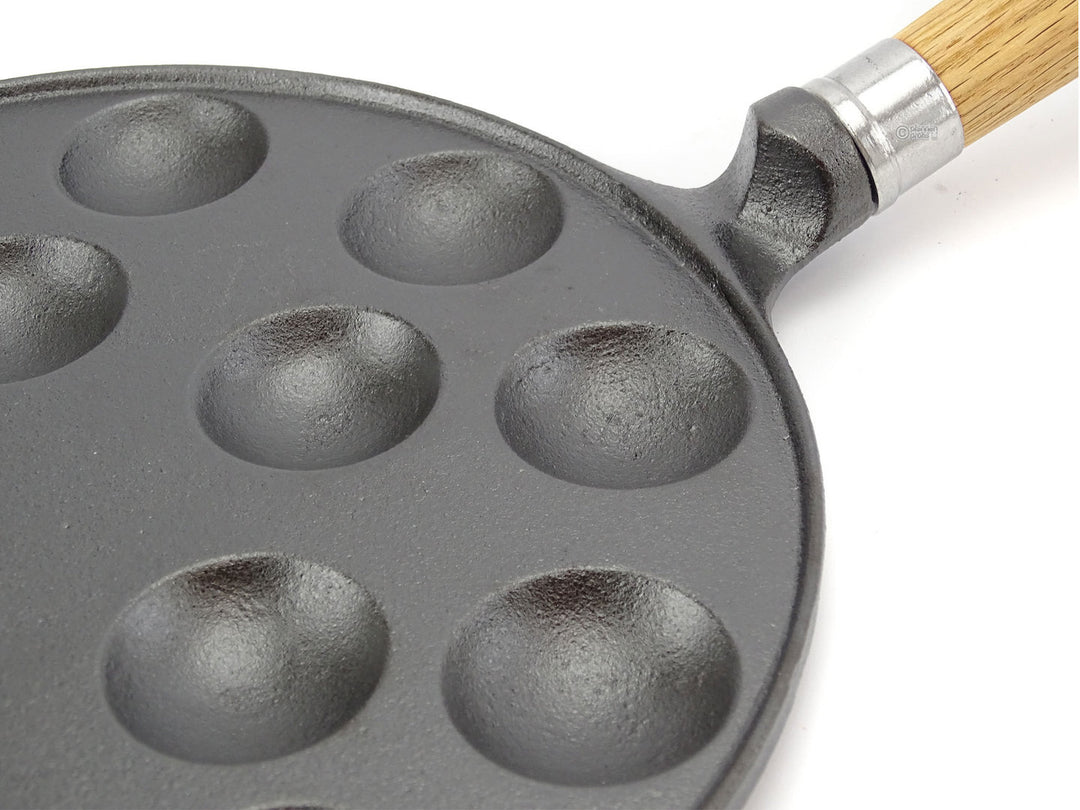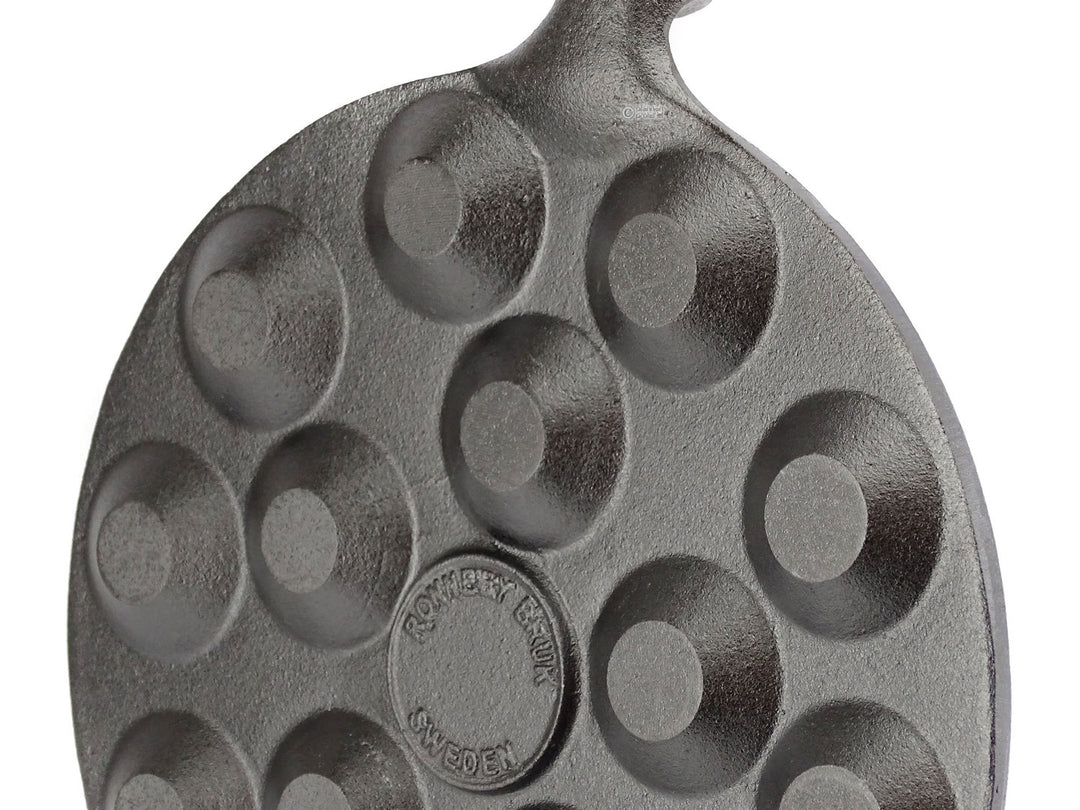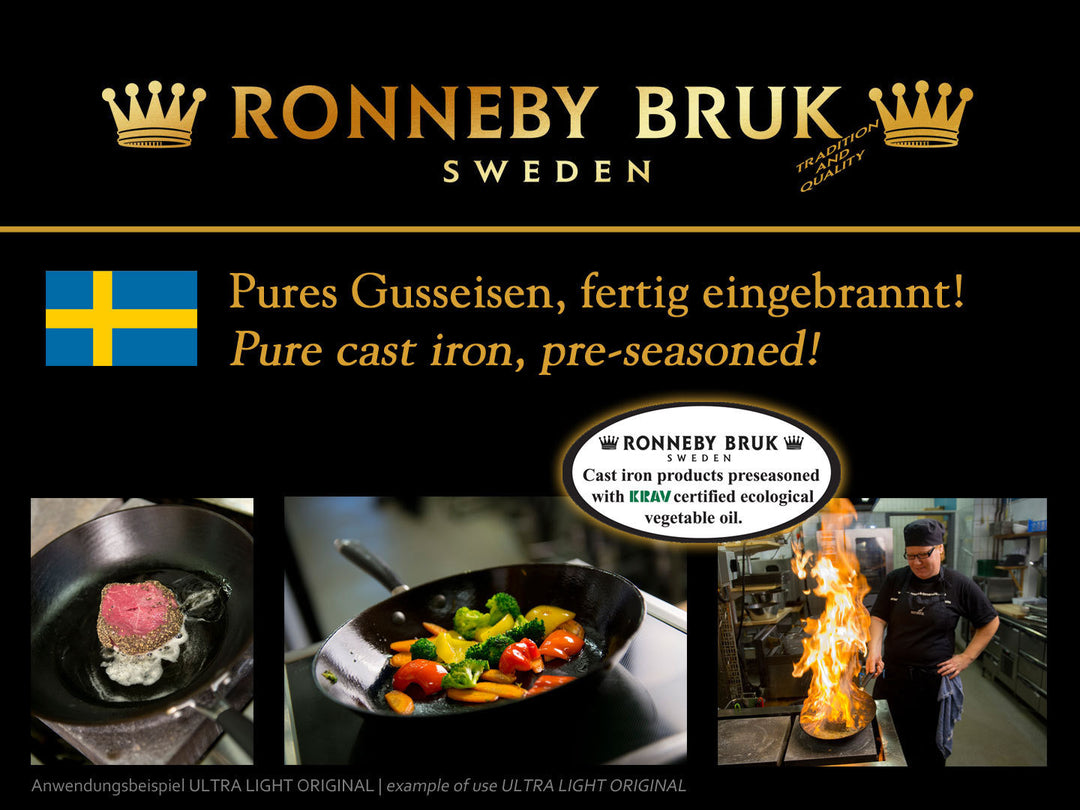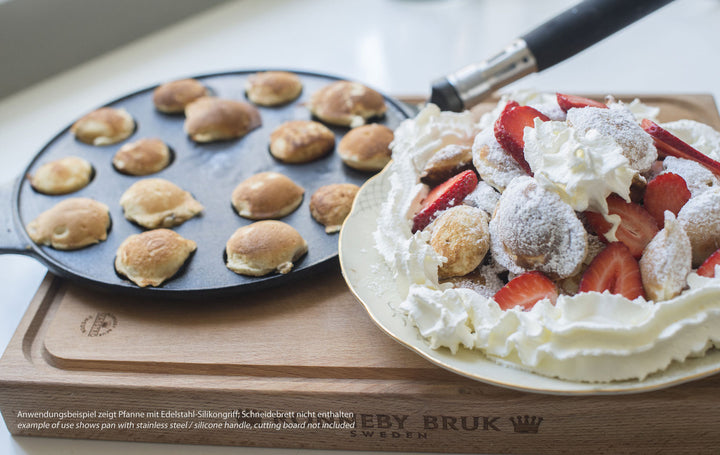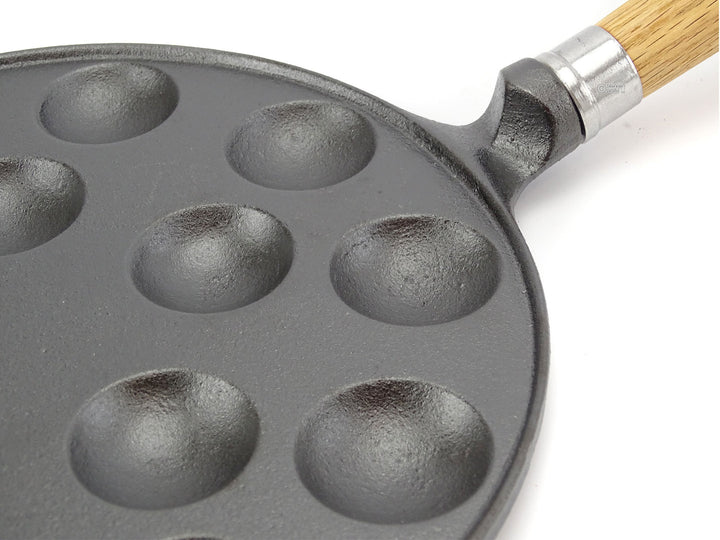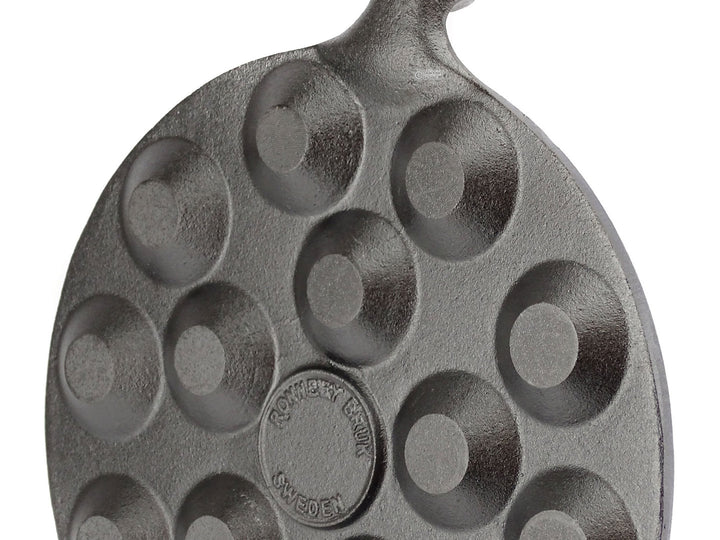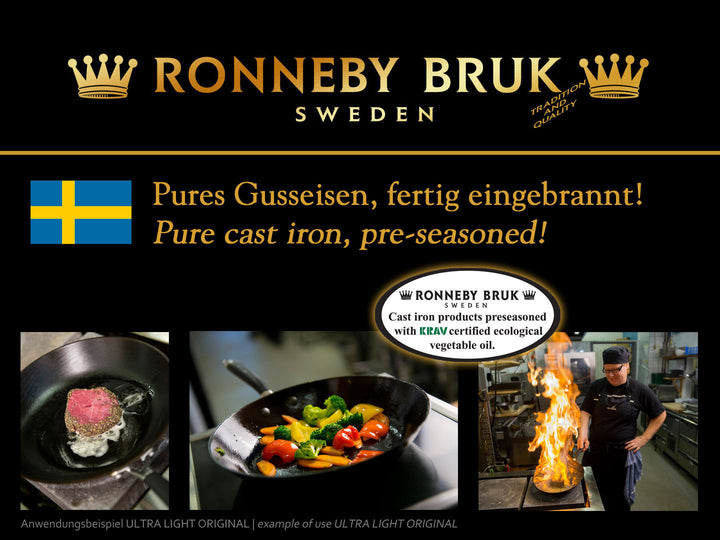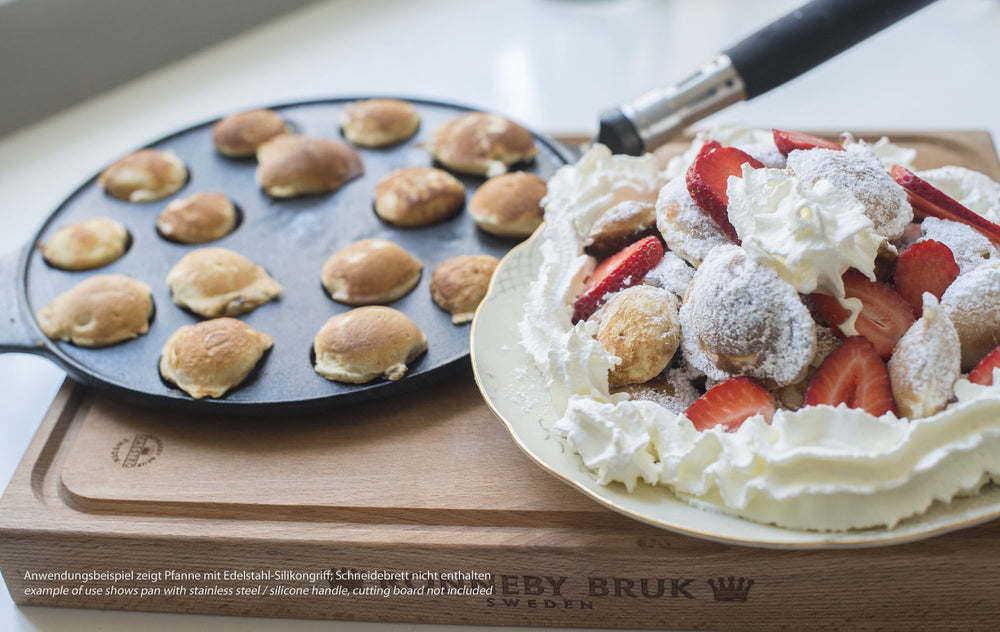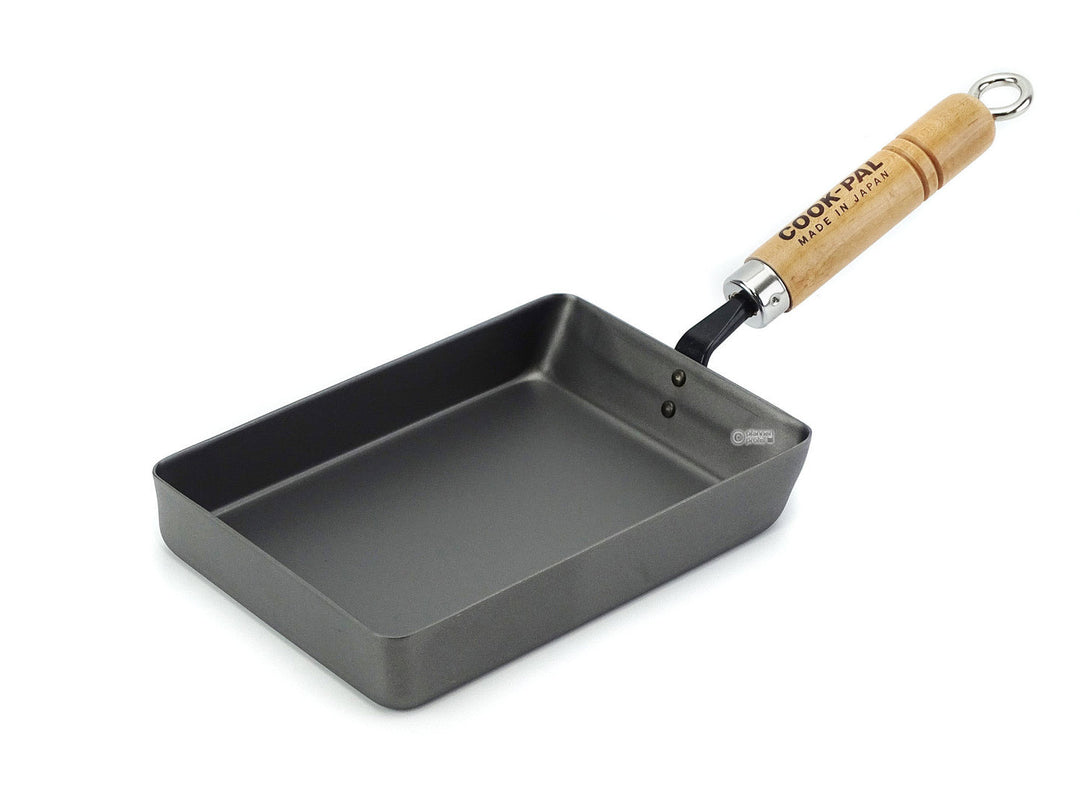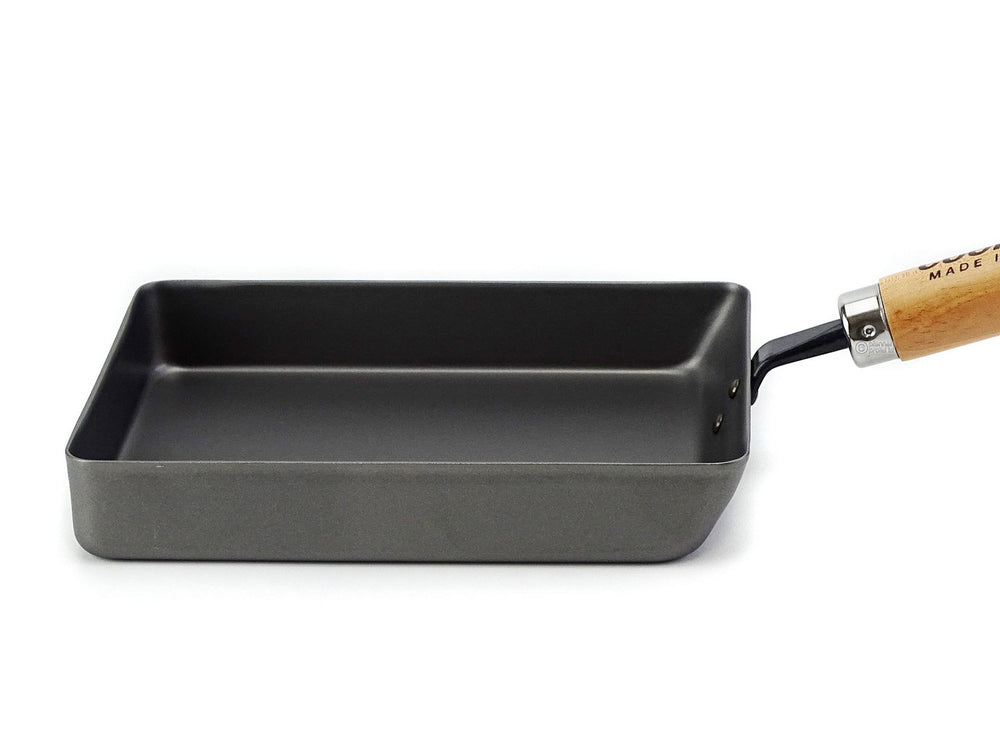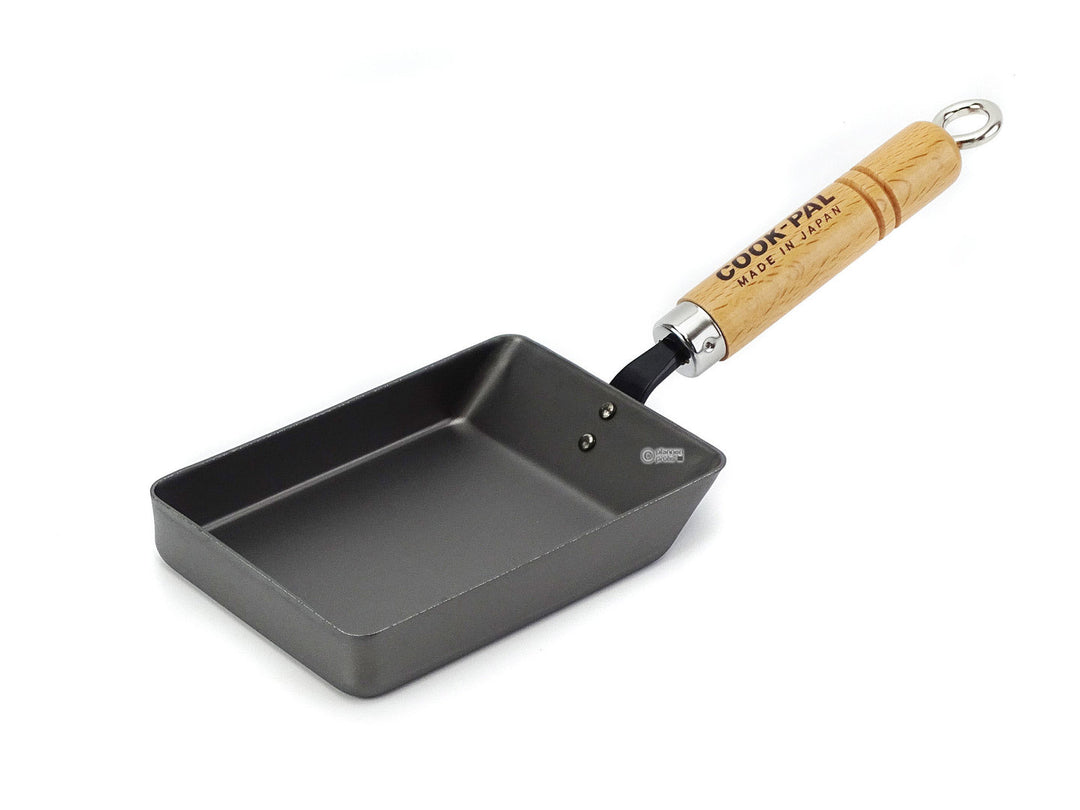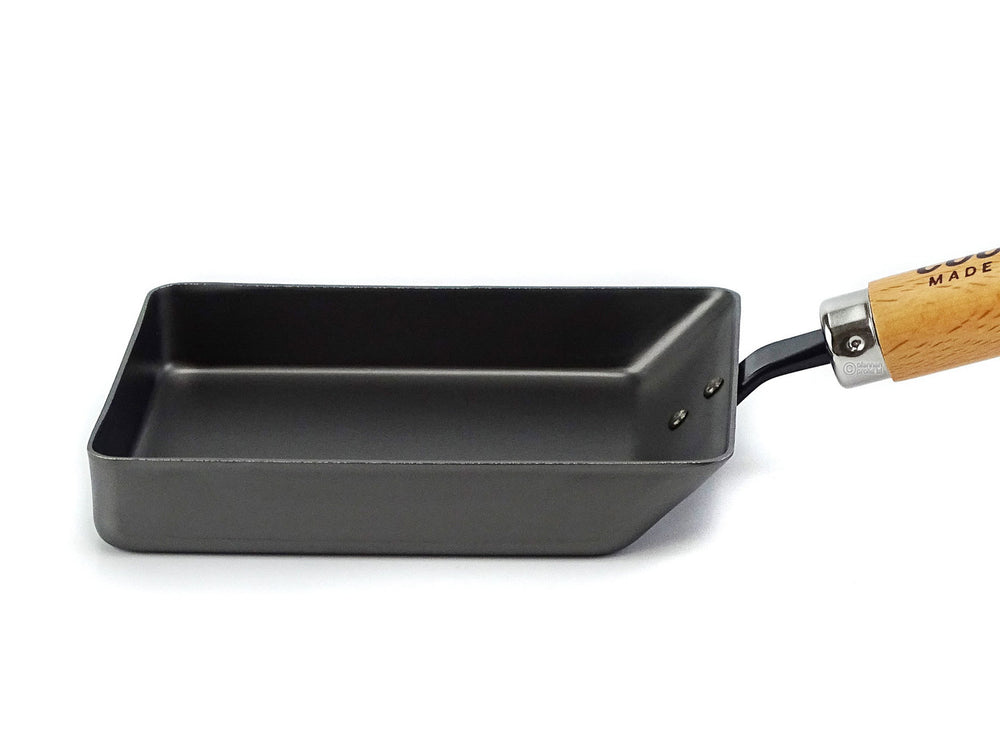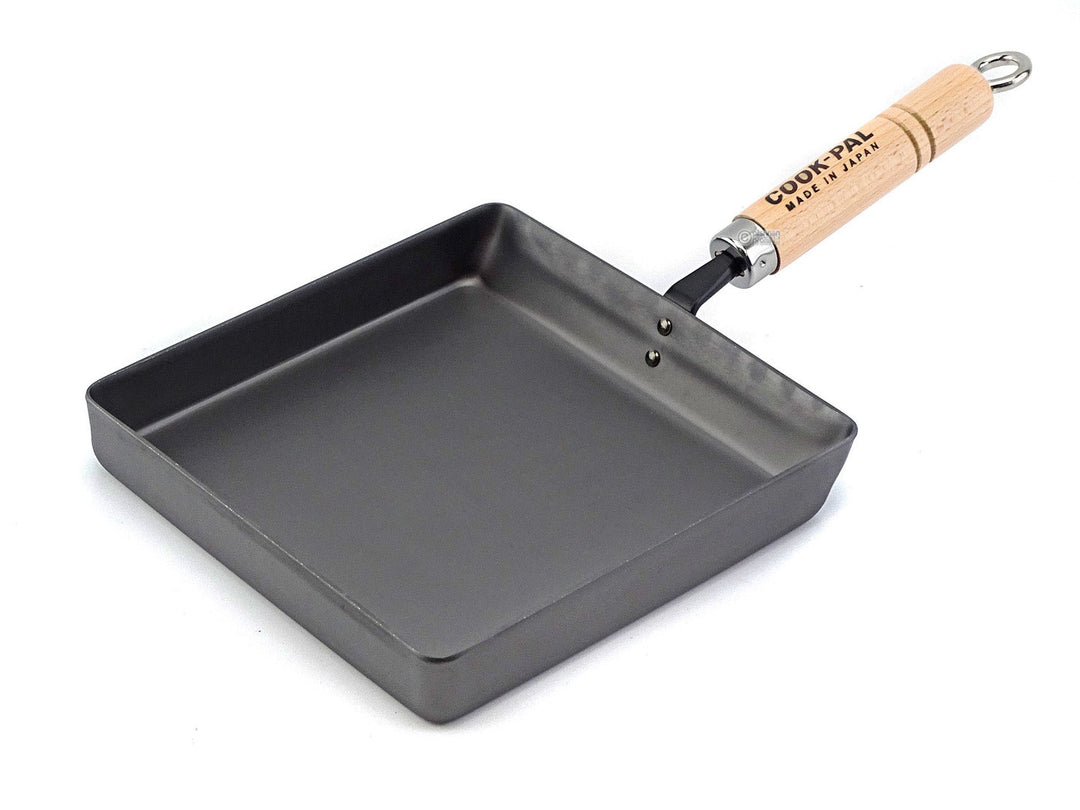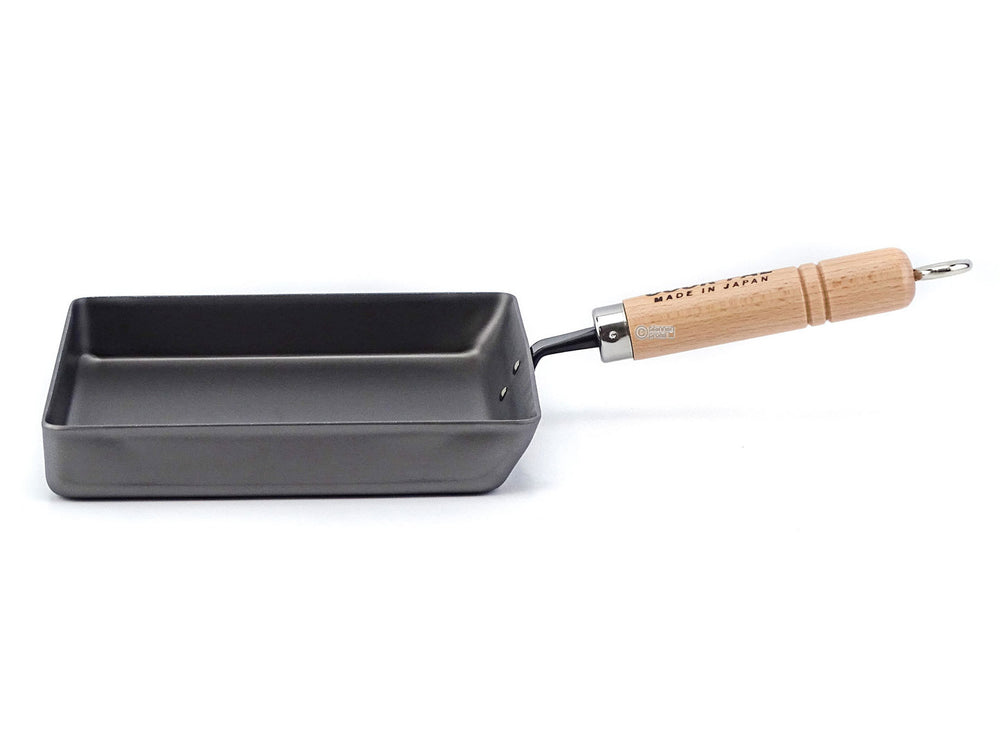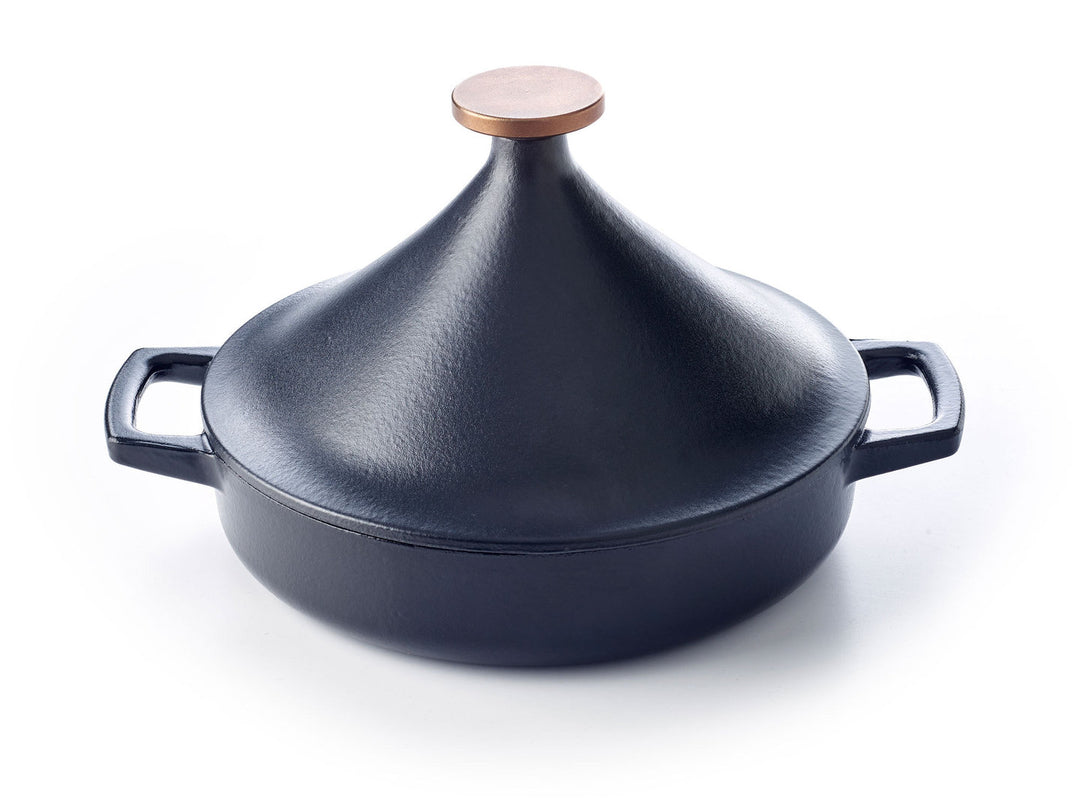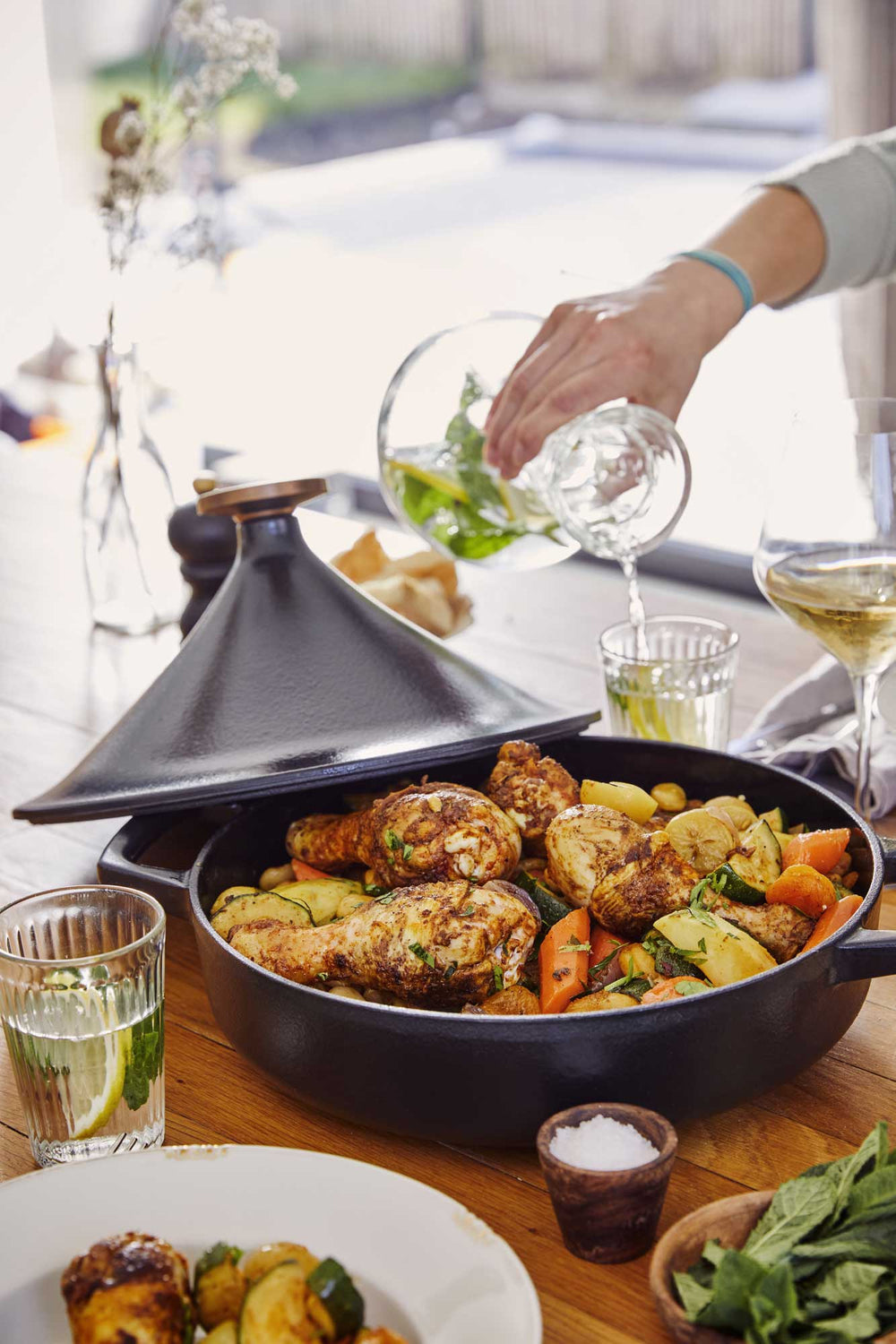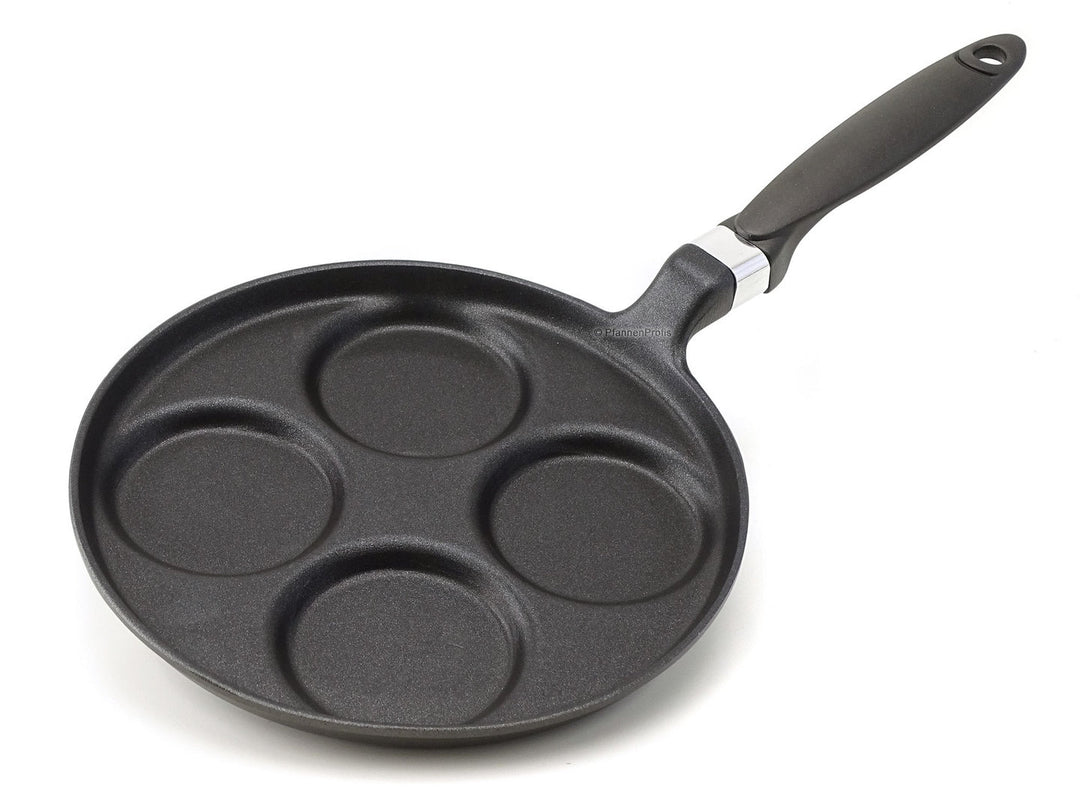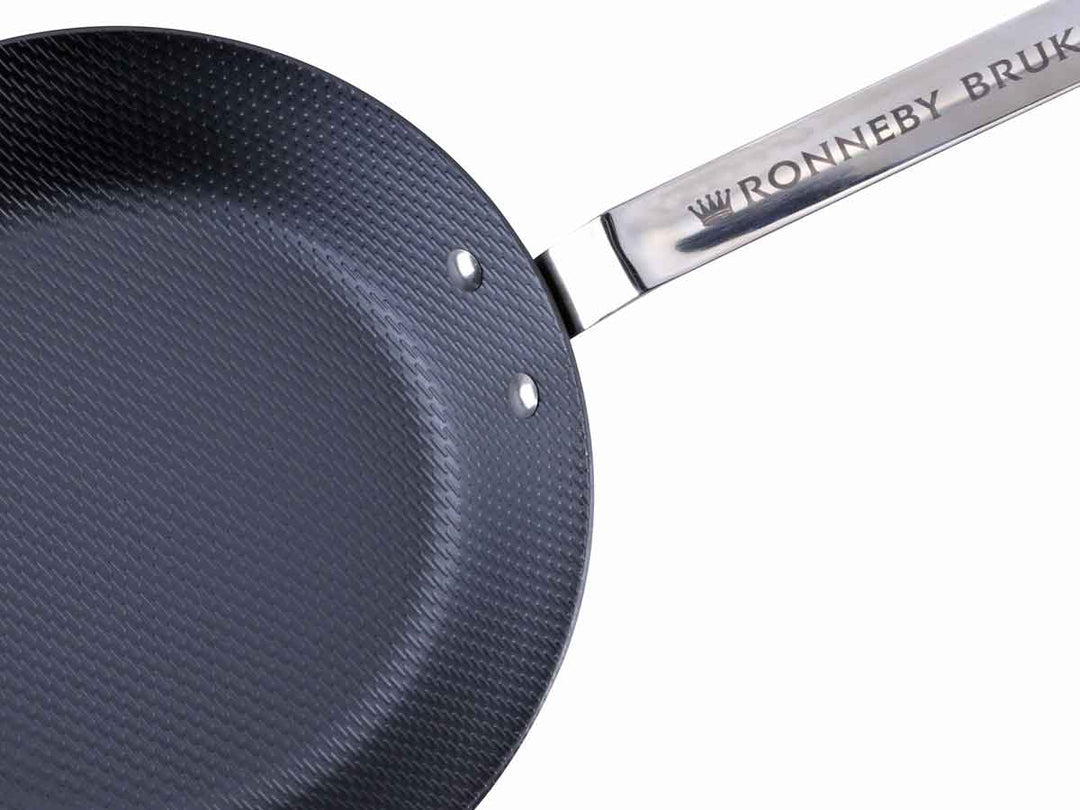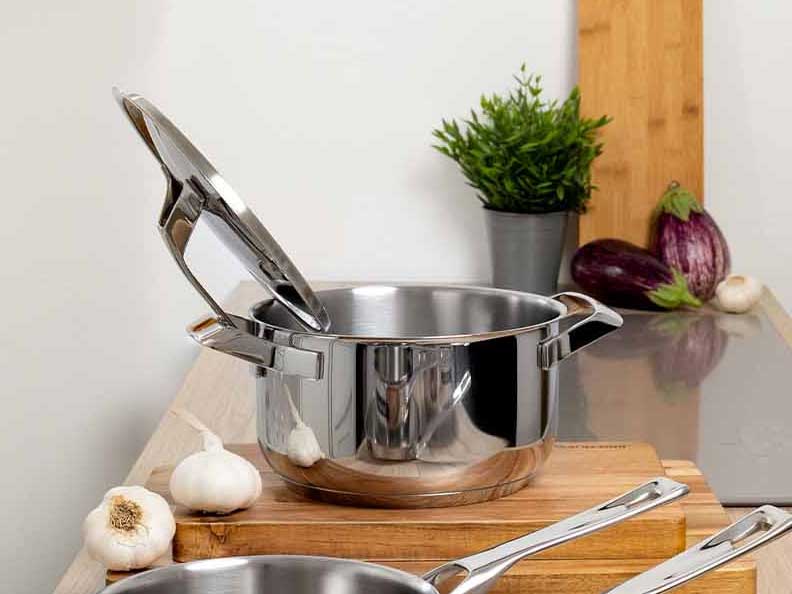Pre-seasoned cast iron Poffertjes pan, without artificial coating
The award-winning MAESTRO cast iron pans by Swedish company RONNEBY BRUK are ideally suited for all cooks who are looking for a durable, heavy frypan without any artificial coating.
To make sure that you can start using your new pan right away, the MAESTRO pans, like all raw cast iron products by Ronneby Bruk, are completely factory pre-seasoned with pure rapeseed oil. This protective seasoning layer is the optimal basis for the patina that gradually forms during frying, so your long-lasting MAESTRO pan will actually get better and better over time.
MAESTRO frypans are ideal for induction cooktops and can of course also be used on all kinds of conventional stoves where they work just as fine.
- A top quality product by Ronneby Bruk, design by Sigurd Persson.
- Durable cast iron frypan with 15 moldings, uncoated, pre-seasoned with rapeseed oil.
- Excellent frying results and optimal browning of dough.
- Exclusive oakwood handle, screwed (anti-twist safeguard), with hanging loop.
- Cast iron helper handle. (Please use pot holder.)
- Diameter of each molding ca. 4 cm, depth ca. 1 cm.
- Length with handle ca. 51 cm.
- Weight ca. 1,7 kg.
- For all hobs, including induction. *
* Please note: The base of this pan is not fully flat, only the poffertjes bases contact the cooktop; also, slight unevenness is possible. Heating up the pan on Ceran / Halogen cooktops and radiant / hot plates might take longer.
IMPORTANT! When in doubt, please check the correct working of the pan on your stove / cooktop, heating up the pan empty or only filled with water BEFORE FIRST USE, especially on induction.
PfannenProfis application tip: This item comes already completely seasoned but of course it does not have an artificial non-stick coating. It is good practice to first fry insensitive foods a few times in a new raw cast iron pan so that the pores in the still fresh seasoning layer can saturate themselves with fat, so to speak, before preparing dough and egg dishes that tend to stick. For example, frying fatty bacon in the new pan has proven to be a good way to do this. Alternatively, you can coat the frying surface with fat, heat it carefully under constant observation up to the smoking point, let it cool, wipe it out and repeat the process if necessary. Please observe the instructions for use and care enclosed with the goods. You will also find many helpful tips in the "Frying School" brochure, which you can download here.
Cookware made of raw, uncoated cast iron may show traces of the casting process (small protrusions or indentations); such production marks do not constitute grounds for complaint.
Understanding the information on the size / diameter, height and capacity of cookware:
1) The most important information: diameter = upper inner diameter

The diameter is the most important indication of the size of pots and pans. The measurement is taken at the top inside , i.e. on the inside of the pan/pot rim; hence the designation upper inner diameter, which you will find in our item descriptions. A 28 cm pan has a diameter of 28 cm from one inner edge to the other inner edge. This measurement method is an international standard and authoritative, unless expressly stated otherwise in the item description.

For square pans (e.g. many grill pans) and roasters, the size is given as the product of two lengths. Here you measure again at the top inside, at the longest point, which is usually in the middle. For example, many grill pans have a size of 28 x 28 cm.
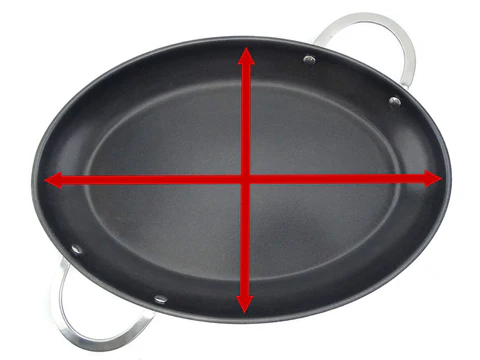
Fish pans and roasters often have an oval shape. As shown above with the square pans, the longest internal dimension is given here. Such a 38 cm fish pan has an inner length of 38 cm on its longest side. At right angles to this is the short side of eg 24 cm. As a result, the pan would be declared as 38 x 24 cm.
2) Bottom diameter = contact surface
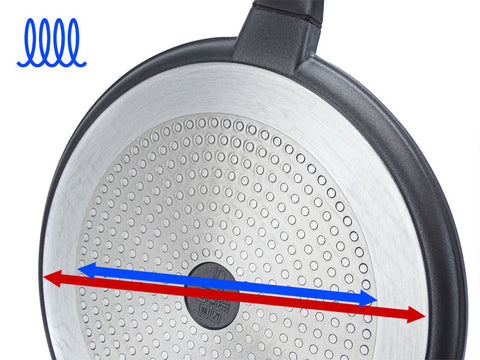
When we talk about base diameter, we mean the diameter of the contact surface, i.e. the surface with which the pan, pot or roaster stands on the stove. Not meant is the frying surface! The information about the base diameter can be helpful when it comes to choosing a suitable cooking surface for the cookware. The size of the cooker and the diameter of the base of the cookware should match to a certain extent in order to avoid damage to the cookware and to ensure that the cookware functions as well as possible.
ATTENTION, induction-suitable aluminum cookware:
Please note that cookware made of aluminum / cast aluminum for induction cooking usually has a stainless steel disc on the base, the diameter of which is often smaller than that of the base (marked in blue in the picture). Where this applies, you will find the corresponding information in our item descriptions.
3) Height of pots and pans

Unless expressly stated otherwise, the indication of the height of a cookware describes the outer edge height, from the top edge of the cookware perpendicularly to the contact surface, without taking lids, handles etc. into account.
The inner height (i.e. from the frying surface up to the edge) can be determined approximately by subtracting the base thickness from the height.
4) Capacity of a cookware

When it comes to capacity, there are often misunderstandings: the capacity of a cookware indicates how much the container can hold at most. That always means filling up to the brim! This is international standard. The filling quantity that can be used when cooking is always less than the capacity.
Please note that in the case of pressure cookers, for safety reasons, the filling quantity permitted in pressure cooking is significantly lower than the capacity of the pot.
 DE: 4.90 €
DE: 4.90 €
 EU: from 14.90 €
EU: from 14.90 €
 UK: from £18.40, delivered duty paid
UK: from £18.40, delivered duty paid
 CH: from 19.90 € (duties & charges may apply with / after delivery)
CH: from 19.90 € (duties & charges may apply with / after delivery)
 USA & CND: from 35.70 € (duties & fees may apply with / after delivery)
USA & CND: from 35.70 € (duties & fees may apply with / after delivery)
More details about shipping costs here.


